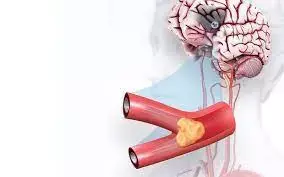- Home
- Medical news & Guidelines
- Anesthesiology
- Cardiology and CTVS
- Critical Care
- Dentistry
- Dermatology
- Diabetes and Endocrinology
- ENT
- Gastroenterology
- Medicine
- Nephrology
- Neurology
- Obstretics-Gynaecology
- Oncology
- Ophthalmology
- Orthopaedics
- Pediatrics-Neonatology
- Psychiatry
- Pulmonology
- Radiology
- Surgery
- Urology
- Laboratory Medicine
- Diet
- Nursing
- Paramedical
- Physiotherapy
- Health news
- Fact Check
- Bone Health Fact Check
- Brain Health Fact Check
- Cancer Related Fact Check
- Child Care Fact Check
- Dental and oral health fact check
- Diabetes and metabolic health fact check
- Diet and Nutrition Fact Check
- Eye and ENT Care Fact Check
- Fitness fact check
- Gut health fact check
- Heart health fact check
- Kidney health fact check
- Medical education fact check
- Men's health fact check
- Respiratory fact check
- Skin and hair care fact check
- Vaccine and Immunization fact check
- Women's health fact check
- AYUSH
- State News
- Andaman and Nicobar Islands
- Andhra Pradesh
- Arunachal Pradesh
- Assam
- Bihar
- Chandigarh
- Chattisgarh
- Dadra and Nagar Haveli
- Daman and Diu
- Delhi
- Goa
- Gujarat
- Haryana
- Himachal Pradesh
- Jammu & Kashmir
- Jharkhand
- Karnataka
- Kerala
- Ladakh
- Lakshadweep
- Madhya Pradesh
- Maharashtra
- Manipur
- Meghalaya
- Mizoram
- Nagaland
- Odisha
- Puducherry
- Punjab
- Rajasthan
- Sikkim
- Tamil Nadu
- Telangana
- Tripura
- Uttar Pradesh
- Uttrakhand
- West Bengal
- Medical Education
- Industry
Increased Blood Retinol Levels may Reduce Risk of TIA or Stroke in Adults: study

An inverse association exists between blood retinol and the risk of TIA or stroke, according to a recent study published in the Frontiers in Cardiovascular Medicine.
Data on the existing evidence for the association between blood retinol and transient ischemic attack (TIA)/stroke risk are limited, and the results are inconclusive. This study aimed to further assess the associations between the blood retinol levels and the risk of TIA/stroke after controlling the lifestyle factors and age-related confounders. The cross-sectional data from 1,113 individuals (aged 34–84 years old) were obtained from the Midlife in the United States (MIDUS) study. The multivariable analyses were performed to investigate the association of blood retinol levels with ever and currently TIA/stroke.
The Results are:
There was an inverse association between the blood retinol levels and the risk of ever TIA or stroke (for per 1 μmol/L adjusted odds ration [OR]: 0.93; 95% CI: 0.89–0.97; for per 1-SD adjusted OR: 0.89; 95% CI: 0.83–0.96) and currently diagnosed TIA or stroke (for per 1 μmol/L adjusted OR: 0.91; 95% CI: 0.87–0.96; for per 1-SD adjusted OR: 0.84; 95% CI: 0.80–0.91) after controlling the lifestyle factors and age-related confounders. The significance of these associations was maintained after a sensitivity analysis and involving "ever chronic respiratory diseases" as a covariate. Moreover, the stratified analyses suggested that the inverse associations could be affected by overweight [body mass index (BMI) ≥ 28, kg/m2], hypertension, and diabetes.
Thus, the researchers concluded that a significant inverse association between blood retinol and the risk of TIA or stroke was found. This inverse association did not change even after adjustment for many potential confounders. Moreover, the potential protective effect of retinol on TIA/stroke could be blunted by overweight [BMI ≥ 28, kg/m2], hypertension, and diabetes.
Reference:
Increased Blood Retinol Levels Are Associated with a Reduced Risk of TIA or Stroke in an Adult Population: Lifestyle Factors- and CVDs-Stratified Analysis by Linjuan Guo et al. published in the Frontiers in Cardiovascular Medicine.
https://www.ncbi.nlm.nih.gov/pmc/articles/PMC8635055/
Dr. Shravani Dali has completed her BDS from Pravara institute of medical sciences, loni. Following which she extensively worked in the healthcare sector for 2+ years. She has been actively involved in writing blogs in field of health and wellness. Currently she is pursuing her Masters of public health-health administration from Tata institute of social sciences. She can be contacted at editorial@medicaldialogues.in.
Dr Kamal Kant Kohli-MBBS, DTCD- a chest specialist with more than 30 years of practice and a flair for writing clinical articles, Dr Kamal Kant Kohli joined Medical Dialogues as a Chief Editor of Medical News. Besides writing articles, as an editor, he proofreads and verifies all the medical content published on Medical Dialogues including those coming from journals, studies,medical conferences,guidelines etc. Email: drkohli@medicaldialogues.in. Contact no. 011-43720751


